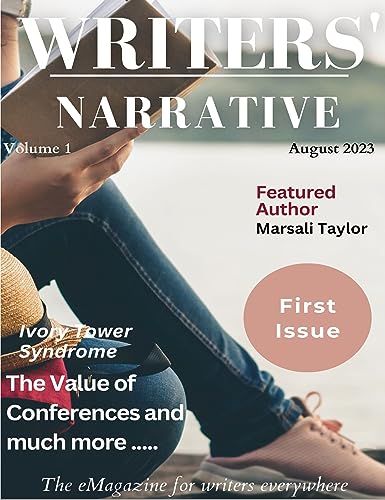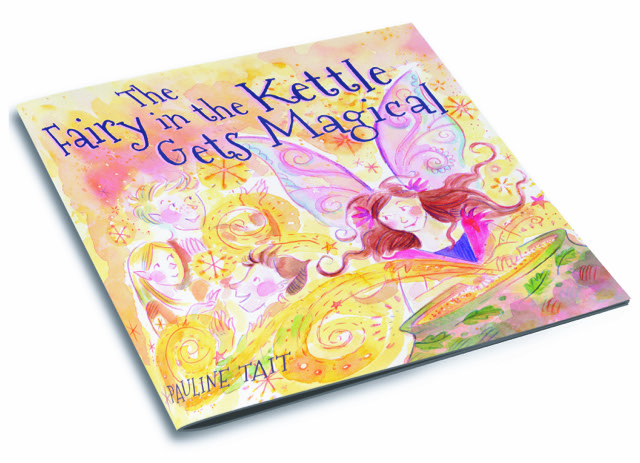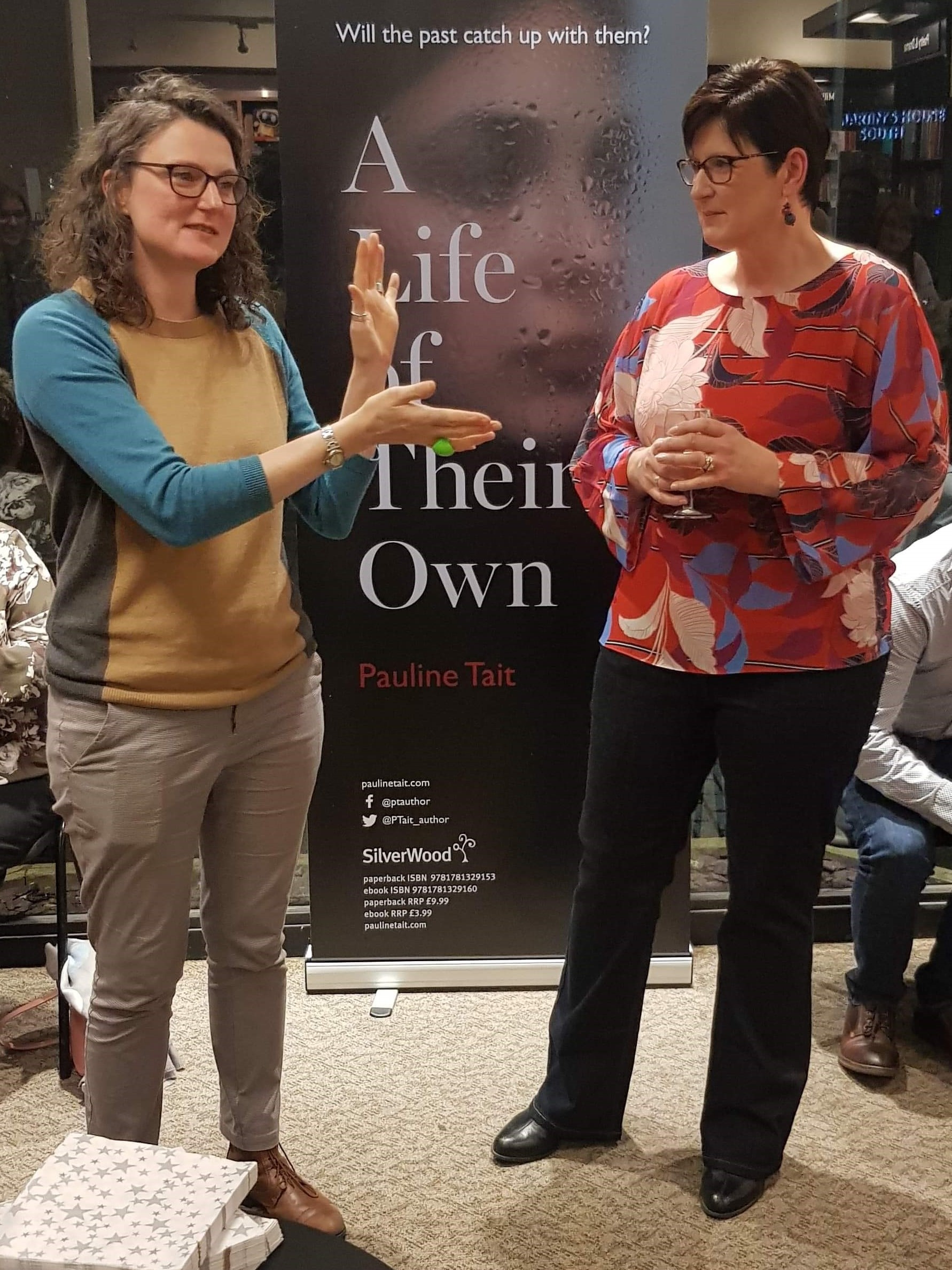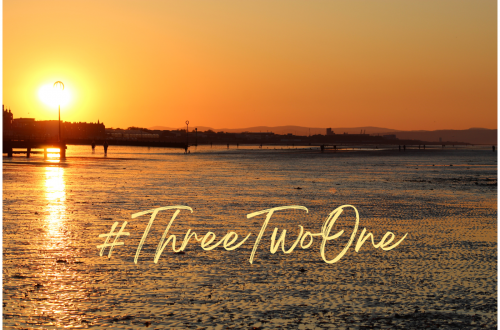
The Privilege of Writing for Children
As the article appeared in the August edition of Writers’ Narrative, an online magazine for writers…
With a background in Primary Literacy Support,
Pauline Tait is passionate about encouraging children in their reading and writing.
Pauline shares why it is a privilege for her to write for children.
To say writing for children is a privilege, is not an overstatement. It is indeed a fact that we, as authors, should cherish. We have within our grasp a chance to empower, feed creative minds and provide an escape for children who perhaps struggle with day-to-day life.
That, however, is above and beyond the initial benefits our words can bestow on our younger generations. Take picture books for example. They have the power to enrapture children. To feed their imaginations and ignite their creativity. All the while momentarily transporting them to distant worlds.
‘To say writing for children is a privilege, is not an overstatement.’
Whether fiction or non-fiction, a picture book can be powerful, educate, instil morals, and send positive messages all while introducing friendly, loveable, inspiring characters children will adore.
Equally, a villain in a story can encourage empathy. As children cheer on the underdog, willing them to overcome their villainous rival, they begin to care for and feel a need to read on as they see their new cherished character blossom and overcome adversity.
The power of the picture book is not solely in whether our children like or dislike a character. It is not just in which distant land their next picture book will transport them. It is far more. Younger children will follow the story visually while being read to. They will listen as the reader’s voice laments the story, their voice rising and falling as excitement and tensions build.
By default, we are also encouraging early communication and language skills. As we read to our children, they can become enthralled by the characters and their adventures, which develops intrigue, excitement, concern, and compassion. They will want to ask questions and communicate their thoughts and hopes.
‘Both reading and writing are essential elements to our children’s future learning.’
Initially, younger children will point with their fingers or make a facial expression. But, as they develop, they will begin to chat about the story and offer their insight as to where they think the story might be going.
As they further develop, they will start to follow the words. It might be with a pointed finger or through asking questions, but no matter their method, they are learning the building blocks to reading, sentence structure, and, in turn, the building blocks to writing. All the while bonds are being built, and early childhood development encouraged.
At the same time, picture books can aid older or reluctant readers who need extra encouragement. Not too long, and with visual storytelling through illustrations, a picture book can help keep a child’s attention. And seeing a story through to its conclusion can be powerful for those whose attention spans may wander.
‘Whether fiction or non-fiction, a picture book can be powerful.’
Both reading and writing are essential elements to our children’s future learning, and picture books are one of the first crucial rungs in their developmental ladder. Life’s natural progression means that as children’s reading ability and vocabulary develop, we can continue to inspire their creativity and imaginations through chapter books and then novels.
Chapter books, aimed at 5 to 9 years are a gentle transition for children. Often empowering them as they begin reading a book similar in presentation to those of the adults in their lives. They can unwittingly bolster a child’s confidence in their own reading and open them up to more detailed worlds.
Still short, simple tales, children learn to follow the story without the visual aides of illustration on every page. Rather illustrations become a sporadic joy through these books and, subconsciously, a child’s reading endurance increases. And with it, their own ability when it comes to creative writing in the classroom.
Fast forward a few years and children progress to chapter books for 9 to 12 years where there is a vast selection of literary gold! These books bridge the gap between early chapter books and full novels and there is an abundance of genres, authors, and worlds for our adolescents to immerse themselves in.
Just as there are vast differences within the reading abilities of 9- and 12-year-olds, there are a vast assortment of worlds aimed more specifically at 9-10- and 11–12-year-olds. Meaning children can transition through this age bracket at a pace that suits their own reading stage. They can be confident in the authors who write in these age brackets, and they can immerse themselves in series that will envelop their worlds for weeks, months and even years. They will find characters that will stay with them into their adult reading and will flourish as they further in their literacy education.
Many children often step away from reading as they venture into adulthood. Further education may mean they are reading educational books rather than their preferred genre. Life becomes busier as employment, and all that comes with growing up, is given over to making their way in the world.
But never fear, the love of books is deep seated, it will return when they become more settled in life. Meanwhile, the gift of early childhood reading is carrying them forth. Their stamina, creativity, ability to complete forms, write reports, read complicated work jargon, decipher complicated instructions, communicate in a professional manner, all come from the worlds they escaped to as children, the characters they adored, and the bonds built with those who read to them.
‘They will find characters that will stay with them into their adult reading.’
Introducing children to reading at an early age is a gift. Without them realising, we are cementing the building blocks to their future education and personal development. We are giving them the world.
By Pauline Tait, Novelist, Children’s Author and Mentor to Children’s Authors




